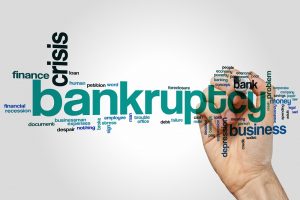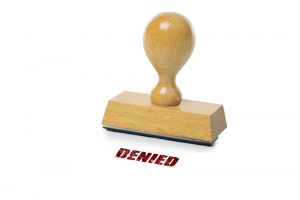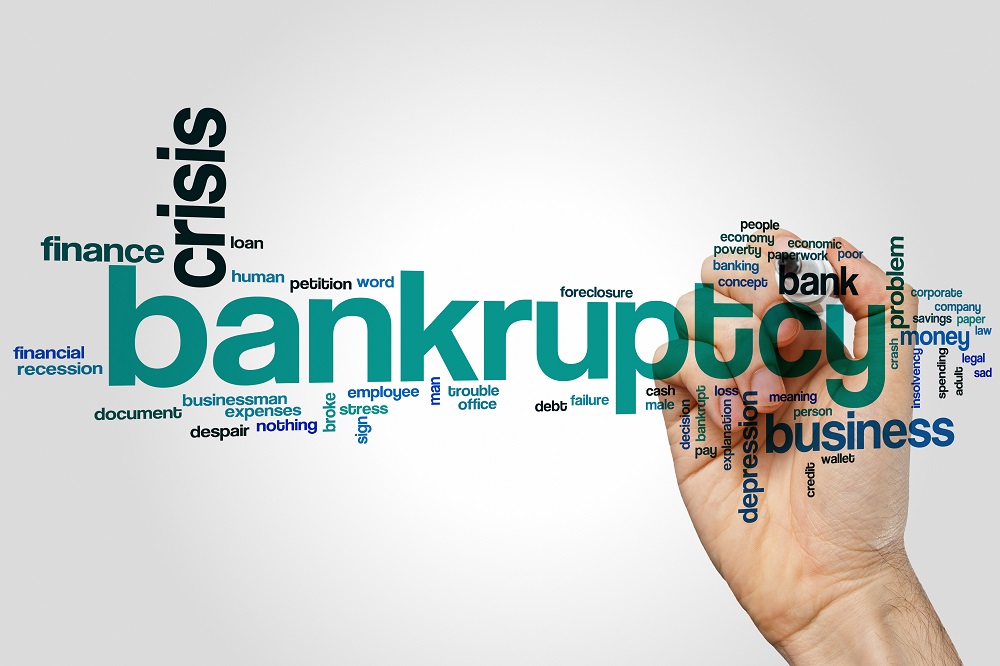What is the Bankruptcy Discharge as Explained by a Tucson Bankruptcy Attorney

After an individual goes through either a Chapter 7 bankruptcy or a Chapter 13 bankruptcy and completes the process successfully, that individual will receive a bankruptcy discharge. A bankruptcy discharge relieves a debtor of their personal responsibilities for the specific debt that was discharged by the bankruptcy court.[i] There are some debts that are not dischargeable, so it would be incorrect to think that a discharge order from the court is blanketed over all the debts. The discharge from the bankruptcy court will be provided in a court order and will prevent a creditor from collecting from the debtor personally for debts that the debtor owed prior to the bankruptcy. This means that a creditor cannot call or send any more demand letters to the debtor after the discharge has occurred. Keep in mind that a bankruptcy discharge is only going to be provided for individuals.[ii] Corporations, partnerships, and municipalities are not going to be eligible for a bankruptcy discharge.[iii]
The discharge order will be granted at the very end of the proceeding after all the requirements of the debtor have been satisfied.[iv] These requirements could include; completed all the requirements of your personal bankruptcy, attended all the meetings of creditors, provided the court with accurate records of your debts, assets, income, and financial dealings, participated in a session with a credit counselor, and taken a financial management course, and if the debtor has filed a Chapter 13 bankruptcy a�� they have made all the required payments under their personal repayment plan.[v]
Now, as stated previously, not all debts will be dischargeable through the bankruptcy proceeding. The bankruptcy code provides a list of which debts are eligible and are not eligible for discharge.[vi] Some of the debts that are included on the non-dischargeable list include recent taxes, student loans (unless the hardship test can be established), alimony, and child support.[vii] So, even though every other possible debt a person has could be discharged a�� the above listed are here to stay through the good and the bad.
Another type of debt that a discharge will not be successful is liens on secured property.[viii] A lien on a persona��s property occurs when a creditor takes an interest in the debtora��s property in exchange for a loan.[ix] So if the debtor wants to take out a mortgage to purchase the house, a creditor may agree to lend the debtor money but only if the debtor allows the creditor to take an interest in the house itself. This will provide assurance for the creditor that if the debtor fails to pay the money lent to them a�� the creditor will be able to foreclose on the house and make back some of the money. Now, because this type of debt will not be discharged through the bankruptcy, the creditor can still go after the property that has the lien on it.[x] The creditor can repossess cars, or foreclose on homes, and recover as much money as possible. If after the creditor repossess a car or forecloses on a home there is still money owed to the creditor, that creditor CANNOT go after the debtor for the remaining amount. One way for debtors to avoid this from happening to their property is to reaffirm the debt with the lien.[xi] The debtor can do this by agreeing with the creditor that they will continue to pay the creditor, in exchange for the debtora��s ability to keep the property.
Revocation, Denial, and Objections to the Discharge
Just because a debtor has filed for bankruptcy and have gone through most of the requirements for the proceeding, the court may still deny the discharge that is typically available to debtors at the end of the proceeding.[xii] The court needs to have a reason for doing so, and some typical reasons include for example, the debtor did not cooperate with the court or the trustee on their case. The bankruptcy discharge may be denied if the debtor lied on their financial documents or even hid assets to avoid having them sold if the asset was not protected by an exemption. Those are just a few examples of when a court may deny to provide the discharge court order. The court could also revoke the court order of discharge if the debtor was found out to be lying do the court, or doing any of the listed above a�� and the court already provided the discharge order.

There may also be objections to the discharge order after a debtora��s bankruptcy proceeding. An objection will occur when a party to the case, one of the creditors, disputes whether or not the debt they are connected with should be discharged.[xiii]
Now, there are two A�types of objections to a Chapter 7 bankruptcy: an objection to a particular debt and an objection against all of the debts.[xiv] The first type of objection will not affect any other debt in the proceeding a�� just the debt that has been objected to. If the court approves this objection, then the debt will be basically be reaffirmed and the debtor will remain liable to pay the creditor for this debt.[xv] Keep in mind that this can occur even if the court decides to discharge all of the debtora��s other debts.
The next type of grounds for objection, to all of the debtora��s assets, usually occurs when the creditor or trustee believes that the case has been based off fraud.[xvi] Some ways in which bankruptcy fraud can occur include; perjury by providing false information on your bankruptcy petition and schedules, transferring the title or property to another person to avoid having to claim in during the bankruptcy proceeding, or lying to the bankruptcy trustee or judge during the hearings.[xvii] Some people may think they can be sly during a bankruptcy proceeding, but this process is so invasive into the lives of the debtor a�� the truth is eventually bound to come out. If the truth comes out and shows that the debtor was fraudulent, the debtor may face more than a denial of discharge a�� the debtor will be liable to pay ALL of their debts and the debtor could potentially face jail time. A�Article written by Ariano and Associates.
Who Can Object to the Discharge of the Bankruptcy?
So, is it just the creditor who can object to the discharge of bankruptcy? No. In fact, nany of the debtora��s creditors can object, the Chapter 7 bankruptcy trustee on the account can object, and the United State Trustee can object.[xviii] For the creditors, the typical reason that they might file an objection to the discharge would be if the debtor used false or misleading information on the loan application or financial statement between the debtor and creditor.[xix]
 The Chapter 7 bankruptcy trustee on the account has the duty of ensuring that all of the debtora��s assets are collected and that all creditors have been treated equally throughout the proceeding. The trustee has the ability to object to a particular debts discharge, or to all of the debts discharge.[xx] Again, the trusteea��s objection will be anchored in bankruptcy fraud. Finally, the United States Trustee can also object to the discharge of debts, and can do so for all of the debtora��s debts.[xxi] This objection can occur if the United States Trustee believes that there was a violation of the United States Bankruptcy Code.[xxii] An example of a violation would be if the debtor did not wait the appropriate period for filing another Chapter 7 bankruptcy.[xxiii] An individual must wait eight years after a Chapter 7 bankruptcy to file for a subsequent Chapter 7 bankruptcy. If the debtor fails to do so, and the court does not catch this, the United States Trustee can step in and object to the discharge of those debts on those grounds.
The Chapter 7 bankruptcy trustee on the account has the duty of ensuring that all of the debtora��s assets are collected and that all creditors have been treated equally throughout the proceeding. The trustee has the ability to object to a particular debts discharge, or to all of the debts discharge.[xx] Again, the trusteea��s objection will be anchored in bankruptcy fraud. Finally, the United States Trustee can also object to the discharge of debts, and can do so for all of the debtora��s debts.[xxi] This objection can occur if the United States Trustee believes that there was a violation of the United States Bankruptcy Code.[xxii] An example of a violation would be if the debtor did not wait the appropriate period for filing another Chapter 7 bankruptcy.[xxiii] An individual must wait eight years after a Chapter 7 bankruptcy to file for a subsequent Chapter 7 bankruptcy. If the debtor fails to do so, and the court does not catch this, the United States Trustee can step in and object to the discharge of those debts on those grounds.
An objection to a discharge MUST be filed with 60 days after the meeting with the creditors takes place for the debtor.[xxiv] The objection must be made in writing and set out specific reasons for why the filing party believes that the debt should not be discharged.[xxv] The objection to the discharge will be reviewed during a proceeding called the adversarial proceeding. An adversarial proceeding is a separate lawsuit that takes place and is heard within the bankruptcy proceeding.[xxvi] The adversarial proceeding will have its own case number, even though it takes place during the bankruptcy proceeding.[xxvii] The debtor may even have a separate attorney during this proceeding.[xxviii]
Once the person who the adversarial proceeding is against receives notice of the hearing, that person will have a limited number of days to respond to the complaint against them. The response time allotted will depend on the state and the court. In the case of an objection to the bankruptcy discharge, the debtor will be the person who receives notice of the adversarial proceeding. The adversarial proceeding will be heard and decided upon before the bankruptcy proceeding overall can be decided.[xxix] If the judge within the adversarial proceeding finds in favor of the debtor, then their eligible debts may be discharged.[xxx] If the judge, however, finds for the creditor or trustee, then the debt will NOT be discharged and the debtor will remain liable to pay for the debt after the other debts have been discharged through the bankruptcy proceeding. Just like any other proceeding, the adversarial proceeding can be settled before the proceeding concludes.[xxxi]
Conclusion to Bankruptcy Discharge
While many people believe that filing for bankruptcy is a quick way to get out of their financial responsibilities, there are a lot of obstacles to overcome in the proceeding to ensure that everything goes according to plan. After the bankruptcy proceeding, for either Chapter 7 or Chapter 13, the court still has to provide a court order for a discharge of the debtora��s debts. The discharge may be prevented by a number of ways. The court could decide to deny the discharge if the court finds that the debtor was fraudulent, or the court could revoke the discharge order for the same reason if new evidence comes to light after the court has been granted. Creditors, Chapter 7 bankruptcy Trustees, and even the United State Trustee can also object to the discharged based on fraudulent grounds. Overall, just because the bankruptcy proceeding is completed or coming close to completion, there is no guarantee that the debtora��s debts will all be discharged. If any sign of fraud becomes known, the entire bankruptcy proceeding could be compromised. A�For more information contact an affordable bankruptcy lawyer in Tucson at Ariano & Associates.
[i] See What is the Bankruptcy Discharge. NOLO Legal Encyclopedia. (Accessed April 22, 2016). http://www.nolo.com/legal-encyclopedia/what-is-the-bankruptcy-discharge.html
[ii] Id.
[iii] Id.
[iv] Id.
[v] Id.
[vi] Id.
[vii] Id.
[viii] Id.
[ix] See What is a Secured Debt. NOLO Legal Encyclopedia. (Accessed April 22, 2016). http://www.nolo.com/legal-encyclopedia/what-secured-debt.html
[x]A� See What is the Bankruptcy Discharge. NOLO Legal Encyclopedia. (Accessed April 22, 2016). http://www.nolo.com/legal-encyclopedia/what-is-the-bankruptcy-discharge.html
[xi] Id.
[xii] Id.
[xiii] See Objections to the Bankruptcy Discharge. NOLO Legal Encyclopedia. (Accessed April 22, 2016). http://www.nolo.com/legal-encyclopedia/objections-the-bankruptcy-discharge.html
[xiv] Id.
[xv] Id.
[xvi] Id.
[xvii] Id.
[xviii] Id.
[xix] Id.
[xx] Id.
[xxi] Id.
[xxii] Id.
[xxiii] Id.
[xxiv] Id.
[xxv] Id.
[xxvi] See Adversary Proceedings in Bankruptcy. NOLO Legal Encyclopedia. (Accessed April 22, 2016). http://www.nolo.com/legal-encyclopedia/adversary-proceedings-bankruptcy
[xxvii] See Adversary Proceedings in Bankruptcy. NOLO Legal Encyclopedia. (Accessed April 22, 2016). http://www.nolo.com/legal-encyclopedia/adversary-proceedings-bankruptcy.html
[xxviii] Id.
[xxix] Id.
[xxx] See Objections to the Bankruptcy Discharge. NOLO Legal Encyclopedia. (Accessed April 22, 2016). http://www.nolo.com/legal-encyclopedia/objections-the-bankruptcy-discharge.html
[xxxi] Id.

